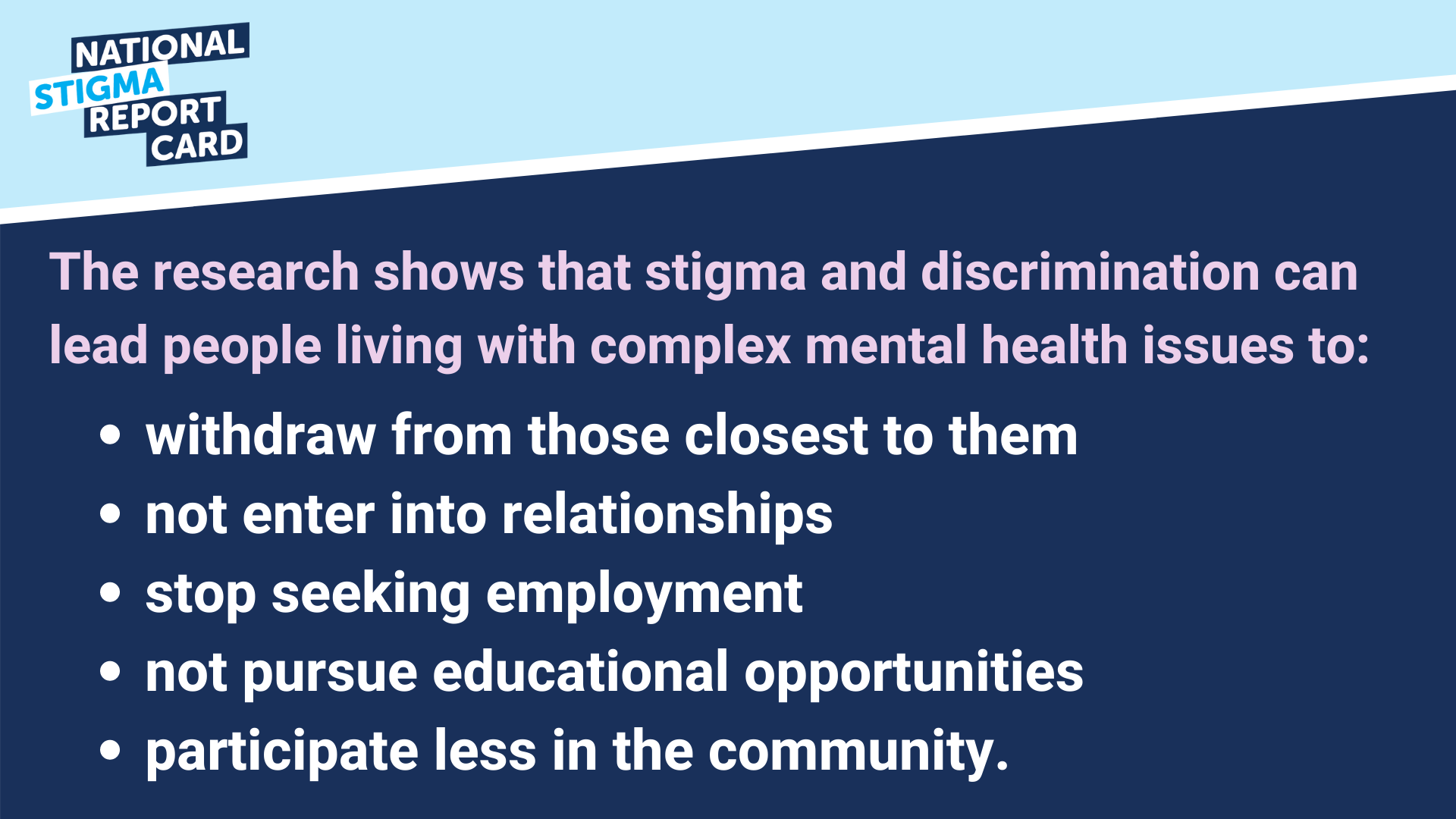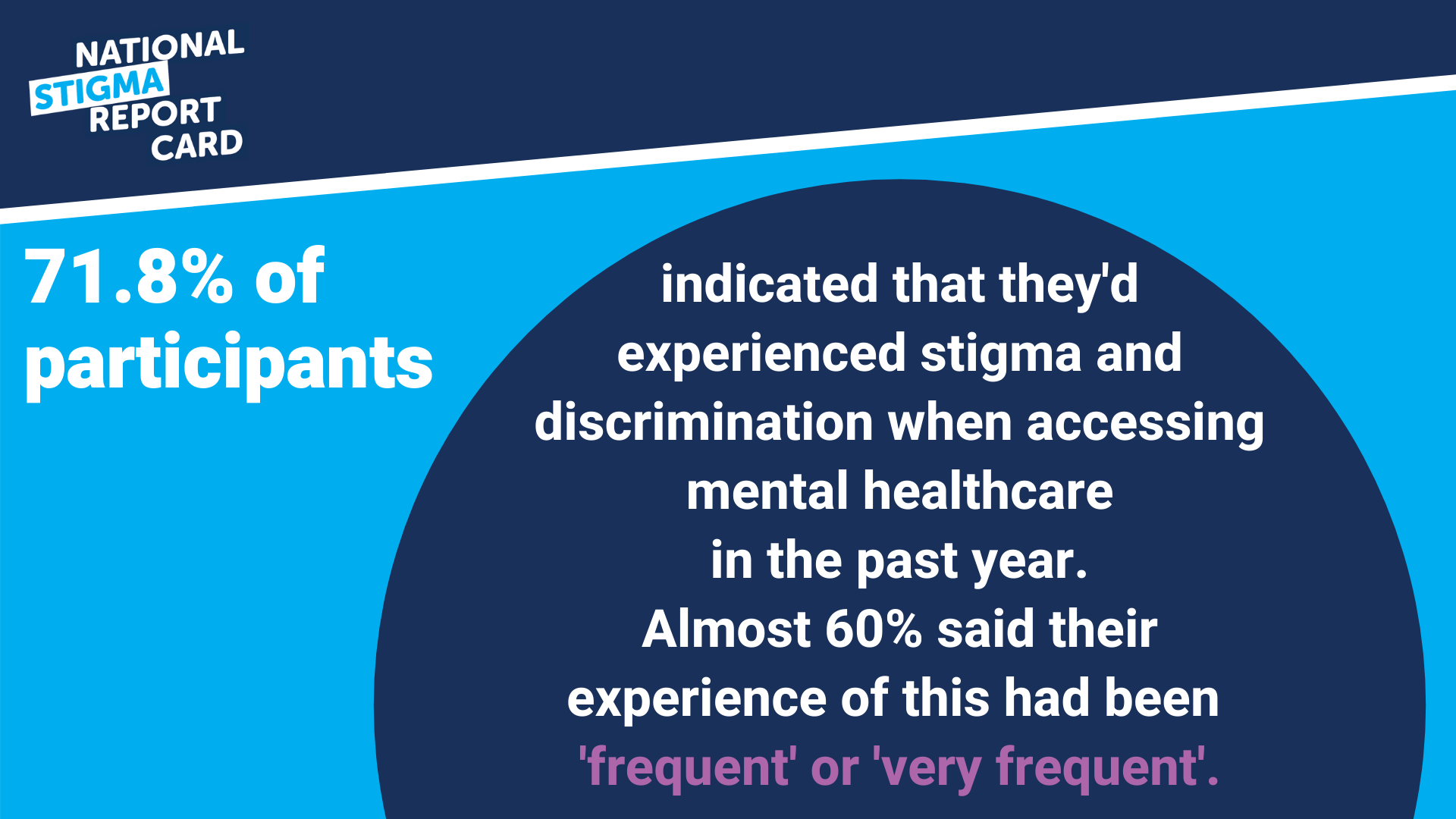We are delighted to announce the launch of findings from the National Stigma Report Card, the most comprehensive research of its kind in Australia.
As you may be aware, SANE Australia’s Anne Deveson Research Centre, in partnership with the Melbourne School of Psychological Sciences and with the support of the Paul Ramsay Foundation, invited people living with complex mental health issues to participate in the Our Turn to Speak survey.
Our Turn to Speak was the first survey of its kind in Australia that sought to comprehensively understand the experiences of people living with complex mental health issues, and how they are affected by stigma and discrimination.
On the National Stigma Report Card website, you can find out more about the research and hear real stories from people living with complex mental health issues, who are impacted by stigma and discrimination.

There's also an online data explorer – an interactive tool where you can compare survey results from different life domains, mental health issues and demographics.
People living with complex mental health issues are being held back from full participation in their communities because they cannot be open about what they are going through. Our recommendations for action are designed to ensure all Australians can live long and fulfilling lives, free from stigma and discrimination.
“Because of the stigma around mental health, I hide my CPTSD & MDD from everyone as much as I can. Only my husband knows about it and even then I still hide some things from him.”
– Our Turn to Speak participant, Western Australia
The insights from the almost 2,000 people who participated in Our Turn to Speak are a rallying cry for all of us to re-commit to our efforts to create an Australia where people affected by complex mental health issues are supported and included as equal members of our community.

A comprehensive, national, multifaceted and centrally funded stigma-reduction program focused on changing social attitudes to complex mental health issues is needed to ensure all Australians can live long and fulfilling lives, free from stigma and discrimination.
You can share the research findings and recommendations for action to social media, using the hashtags #OurTurnToSpeak and #StigmaAndMe. Please ensure you also join the conversation on our social media channels.
Here's to our continued partnership in building a world free from stigma and discrimination.